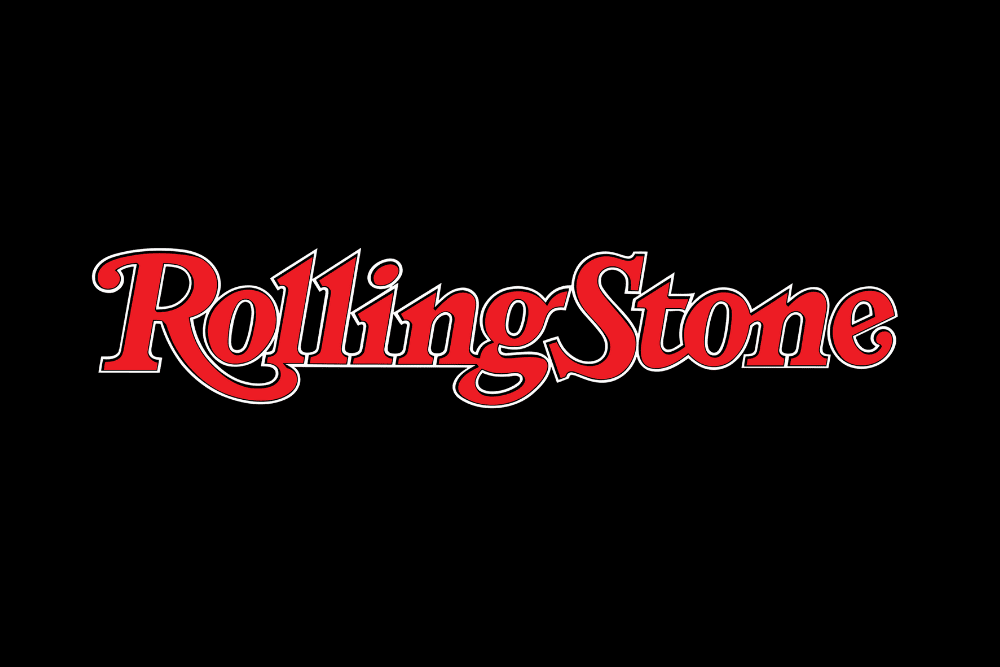When Your Hard-Earned Tips Disappear: What an Unpaid Wages Lawyer in Los Angeles Wants You to Know
Picture this: You just finished a grueling dinner shift at a busy Los Angeles restaurant, where you provided exceptional service to dozens of customers. Your tips should total over $200, but when you check your payout, you’re handed barely half that amount. The manager explains it away as "tip pooling," but something feels wrong. If this sounds familiar, you’re not alone—thousands of restaurant workers across Los Angeles face illegal tip practices every day, losing hundreds or even thousands of dollars each month to employers who violate California’s strict gratuity laws. Understanding your rights under California’s tip pooling regulations can mean the difference between accepting unfair treatment and recovering the wages you’ve rightfully earned.
💡 Pro Tip: Start documenting your tips immediately – take photos of credit card receipts, keep a daily log of cash tips received versus what you actually take home, and save all pay stubs showing tip distributions.
Are you tired of losing your hard-earned tips to unfair practices at work? Take a stand and fight back with the support of MSD Lawyers. Reach out to us at 213-401-0823 or contact us today, and let’s ensure you receive every dollar you deserve.
California’s Iron-Clad Tip Protection Laws: Stronger Than Federal Standards
California Labor Code Section 351 declares that every gratuity is the sole property of the employee to whom it was paid, given, or left for—no exceptions. This means your employer cannot take even a penny of your tips, regardless of their reason. While federal law allows employers to pay tipped workers as little as $2.13 per hour and claim a "tip credit" against minimum wage obligations, California completely prohibits this practice. Every restaurant worker in California must receive full minimum wage plus 100% of their tips. An unpaid wages lawyer in Los Angeles regularly sees violations where employers wrongfully include managers in tip pools, deduct credit card processing fees from tips, or require servers to share tips with kitchen staff who don’t provide direct table service. These violations can result in criminal misdemeanor charges against employers, with penalties including up to $1,000 in fines and 60 days in jail.
💡 Pro Tip: California law requires employers to pay credit card tips by the next regular payday without any deductions—if your employer is delaying payment or deducting fees, they’re breaking the law.
Taking Action: Your Step-by-Step Guide to Recovering Stolen Tips
When you discover your employer is violating California’s tip pooling laws, swift action protects your rights and maximizes your recovery. The process might seem daunting, but breaking it down into clear steps makes it manageable. Remember, California’s strong employee protections mean you have powerful tools to fight back against wage theft, and retaliation for asserting your rights is strictly prohibited.
- Document Everything (Week 1): Gather evidence including pay stubs, tip reports, photos of tip pool distributions, and written policies. Create a spreadsheet tracking daily tips earned versus received.
- Request Records (Week 2): California law entitles you to copies of payroll records—submit a written request to your employer for all tip-related documentation.
- File a Wage Claim (Weeks 2-3): Submit a claim with the California Labor Commissioner’s office, which investigates tip violations and can order employers to pay penalties plus all stolen tips.
- Consult an Attorney (Week 3): An unpaid wages lawyer in Los Angeles can evaluate whether a civil lawsuit would yield better results than the administrative process, especially for systematic violations affecting multiple employees.
- Class Action Potential (Month 2): If multiple workers are affected, attorneys often pursue class action lawsuits that can result in substantial recoveries and force employers to change illegal practices.
💡 Pro Tip: You have three years to file a wage claim for tip violations in California—but acting quickly preserves evidence and may help current employees still facing theft.
How MSD Lawyers Fights for Restaurant Workers’ Rights
At MSD Lawyers, we’ve seen firsthand how illegal tip pooling devastates hardworking restaurant employees who depend on gratuities to support their families. Our experienced team understands both California Labor Code Section 351 and the complex interplay with FLSA tip regulations, allowing us to identify violations that other firms might miss. We pursue every avenue for recovery, from individual wage claims to class action lawsuits that can recover stolen tips for dozens or hundreds of workers. When you work with an unpaid wages lawyer in Los Angeles from our firm, we handle all communication with your employer, protect you from retaliation, and fight to recover not just your stolen tips but also penalties, interest, and attorney’s fees. Many restaurant workers don’t realize they may be entitled to waiting time penalties if their employer fails to pay all wages due at termination—up to 30 days of additional pay.
💡 Pro Tip: Keep working while your claim proceeds—California law prohibits employers from firing or punishing you for filing a wage claim or lawsuit.
Red Flags: Common Tip Pooling Violations in Los Angeles Restaurants
Illegal tip pooling schemes come in many forms, and restaurant owners often try to disguise violations as legitimate business practices. The most blatant violation occurs when managers or supervisors participate in tip pools—federal law explicitly prohibits this regardless of whether the manager occasionally serves tables. Another common violation involves forcing servers to share tips with kitchen staff like cooks and dishwashers. While the 2018 federal law changes allow some tip sharing with back-of-house staff when employers pay full minimum wage and don’t take a tip credit, California’s stricter laws still limit tip pools to employees who provide "direct table service." An unpaid wages lawyer in Los Angeles frequently uncovers hidden violations like employers keeping tips for "house fees," deducting breakage or walkouts from tip pools, or requiring excessive tip-outs to support staff that effectively subsidize their wages.
The "Voluntary" Tip Pool Trap
Some employers claim their tip pooling arrangement is "voluntary," but if refusing to participate means losing shifts, facing hostility, or being labeled "not a team player," it’s actually mandatory. Courts see through these schemes, recognizing that economic pressure makes such arrangements involuntary. We’ve seen cases where servers who opted out of supposedly voluntary tip pools suddenly found their schedules cut or were assigned only slow shifts.
💡 Pro Tip: Even if you signed an agreement to participate in a tip pool, it may be unenforceable if it violates California law—contracts cannot override statutory protections.
Your Rights When Employers Retaliate or Threaten Deportation
Restaurant workers, particularly those in Los Angeles’s diverse immigrant communities, often face threats when they question illegal tip practices. Employers may threaten to call immigration authorities, cut hours, or fire workers who speak up about stolen tips. These intimidation tactics are not only morally wrong but violate multiple California laws. The California Labor Code provides strong anti-retaliation protections, and workers who face retaliation can recover additional damages beyond their stolen tips. Under California Labor Code Section 351, your immigration status doesn’t affect your right to receive 100% of your tips—all workers are protected equally.
Building a Retaliation Case
Documenting retaliation strengthens your case significantly. Save any texts, emails, or written communications where managers threaten consequences for questioning tip policies. Note dates and witnesses when verbal threats occur. If your schedule suddenly changes after raising concerns, compare it to previous weeks and document the reduction in hours or less favorable shifts. An unpaid wages lawyer in Los Angeles can use this evidence to pursue additional claims that often result in larger recoveries than the original tip violations.
💡 Pro Tip: California law allows workers to record conversations about illegal workplace practices as long as you’re part of the conversation—these recordings can be powerful evidence.
Understanding the New Federal Rules and California’s Stronger Protections
The federal landscape for tip pooling changed significantly with regulations effective March 1, 2021, but California workers enjoy even stronger protections. Under FLSA tip regulations, employers who pay full federal minimum wage and don’t take a tip credit can now include traditionally non-tipped employees like cooks and dishwashers in mandatory tip pools. However, California’s prohibition on tip credits means this federal flexibility doesn’t automatically apply here. The Division of Labor Standards Enforcement maintains that tip pool participants should be limited to those providing direct table service—meaning waiters, bussers, bartenders, and hosts, but not kitchen staff. This creates a complex situation where federal law might permit broader tip sharing, but California’s employee-protective stance may still prohibit it.
Why California’s Laws Trump Federal Standards
When state and federal laws conflict, workers receive the benefit of whichever law provides greater protection. Since California completely prohibits tip credits and maintains stricter requirements for tip pool eligibility, these state protections generally control. Employers who claim they’re following federal law while violating California standards face significant liability. The principle is simple: in California, tips belong to the employees who earned them through direct customer service, period.
💡 Pro Tip: If your employer cites federal law to justify including kitchen staff in tip pools, remind them that California law provides stronger protections that they must follow.
Frequently Asked Questions
Common Legal Concerns About Tip Pooling
Restaurant workers often have similar questions about their rights, especially when employers give conflicting information about what’s legal. Understanding these common concerns helps you recognize violations and protect your income.
💡 Pro Tip: Don’t rely on your employer’s interpretation of tip laws—they have a financial incentive to minimize what they owe you.
Next Steps and the Legal Process
Taking action against tip violations might seem intimidating, but California’s legal system provides multiple pathways to recovery, and experienced attorneys can guide you through each step while protecting you from retaliation.
💡 Pro Tip: Many employment attorneys offer free consultations and work on contingency, meaning you pay nothing unless you win your case.
1. Can my manager participate in our tip pool if they occasionally help serve tables?
No. Under both federal and California law, managers and supervisors cannot participate in tip pools under any circumstances, even if they occasionally perform tipped duties. The law is clear: if someone has the authority to hire, fire, or direct other employees’ work, they cannot share in tips.
2. Is it legal for my employer to deduct credit card processing fees from my tips?
Absolutely not. California Labor Code Section 351 requires employers to pay the full amount of credit card tips without any deductions. If a customer leaves a $20 tip on their credit card, you must receive the full $20, and the employer must absorb any processing fees.
3. What damages can I recover if my employer illegally took my tips?
You can recover all stolen tips, plus interest and penalties. California law also provides for waiting time penalties if tips weren’t paid when you left the job. In cases of willful violations, courts may award additional damages. Criminal prosecution can also result in fines up to $1,000 per violation.
4. How far back can I claim stolen tips?
In California, you can generally recover unpaid wages, including tips, going back three years from when you file your claim. If you can prove the violation was willful, this may extend to four years. That’s why it’s important to act quickly and consult with an unpaid wages lawyer in Los Angeles to preserve your rights.
5. What if I’m afraid of losing my job for complaining about tip pooling violations?
California law strictly prohibits retaliation against workers who assert their wage rights. If you’re fired, demoted, or face reduced hours for complaining about illegal tip practices, you may have an additional retaliation claim worth significant damages beyond your stolen tips.
Work with a Trusted Employment Law Lawyer
When restaurant employers steal tips through illegal pooling arrangements, they’re not just taking your money—they’re violating fundamental principles of fairness and California law. Working with an experienced employment law attorney ensures you understand all your rights and pursue every dollar you’re owed. The right legal representation makes the difference between accepting partial recovery and obtaining full justice, including penalties that discourage future violations. Whether you’re a server in downtown Los Angeles or a bartender in the Arts District, your tips are protected by some of the strongest wage laws in the nation.
Feeling shortchanged by your employer’s tip pooling practices? It’s time to make a move and claim what’s rightfully yours. MSD Lawyers is here to stand by your side. Dial 213-401-0823 or contact us today, and take the first step towards securing the wages you’ve earned.













